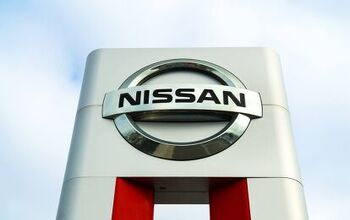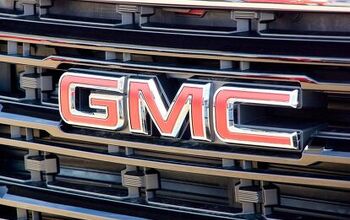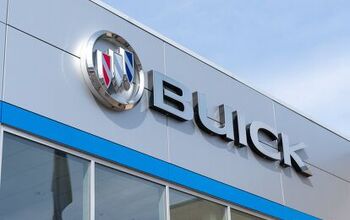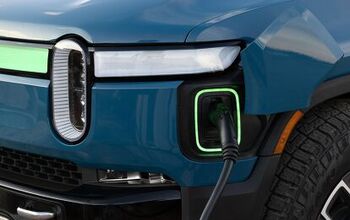Extended Warranty Guide: Should You Buy One?
To learn more about our editorial integrity policy and how we make money through affiliate partnerships, read our full disclosure here.
It’s just a fact of life that cars break down. Luckily, an extended warranty from your automaker or a third-party provider can help reduce the cost of expensive repairs.
In this extended warranty guide, we’ll explain what an extended service contract is and how to use one. We’ll also introduce you to the best extended auto warranty providers in the country.
If you’re interested in getting a free, no-obligation quote from one of the industry’s top-rated options, use the tool above to get started.
Table of contents
What Is an Extended Warranty?
An extended warranty plan is a continuation of coverage for auto breakdowns that keeps you protected from expensive repair costs even after a new car warranty expires. These coverage plans, also known as vehicle service contracts or aftermarket warranties, are generally offered by the automaker and third-party suppliers.
New car warranties are promises from your vehicle’s manufacturer to repair or replace parts of your car for an initial period. For example, if you purchase a brand new Acura from the dealership, you will be protected by the Acura warranty for 4 years or 50,000 miles. Once these limits are reached, you will no longer be covered by the factory warranty, which is why people often choose to purchase extended warranty coverage from a third-party provider.
A third-party extended warranty covers unforeseen repairs you might encounter down the road. It’s important to note that neither the new car warranty nor a standard extended warranty will cover routine maintenance like wiper blades or flat tires. However, you can sometimes get added benefits with warranties that cover these types of services.
Types of Extended Warranties
There are two main types of extended warranties: bumper-to-bumper and powertrain warranties.
While most extended warranty companies offer both levels of coverage, plan names and the parts included vary from provider to provider. Since the various names can get confusing, below we’ll give a general idea of what each plan covers.
A bumper-to-bumper warranty, the more comprehensive option, will cover most repairs for manufacturing defects. Vehicle components like air conditioning and heating, electronics, steering, and suspension are generally covered under this warranty.
Bumper-to-bumper warranties do not cover routine maintenance services and normal wear and tear to your car. Exclusions typically include tires, brake pads, wiper blades, oil changes, and preexisting damage. So if you run over a nail or a rock cracks your window, the claim would be filed with your insurance company instead of with your extended warranty provider.
A powertrain warranty covers the most essential components of your car, such as the engine, transmission, and drivetrain. Many customers choose to purchase powertrain coverage because of how expensive these parts are to repair or replace out of pocket.
Powertrain vs. Bumper-to-Bumper Comparison
A side-by-side comparison may make this extended warranty guide a bit easier to follow, so the key differences between the two main warranty plan options can be found below.
Bumper-to-Bumper Warranty |
Powertrain Warranty |
|---|---|
Covers thousands of vehicle components, from powertrain parts to high-tech systems and electronics |
Covers only powertrain components, offering no protection for high-tech systems |
Exclusionary coverage, meaning that everything is covered except specifically stated exclusions |
Stated-component coverage, meaning that only what’s explicitly listed is covered |
Generally more expensive to purchase |
Generally less expensive to purchase |
How Do Extended Warranties Work?
- Bring your car to an accredited repair facility. Third-party providers generally let you choose your technician, while manufacturer extended warranties require you to go to a dealership. Be sure you’ve checked with your provider before choosing a mechanic.
- Have the mechanic diagnose your car. Once your mechanic makes a diagnosis, they will contact your warranty provider to begin the repair process.
- Pay your deductible and wait for the repair to be completed. You usually have to pay a deductible, but this depends on your contract and provider.
- Get your car back on the road. Once your car is fixed, you can drive your vehicle home from the repair shop.
Where Can You Buy an Extended Warranty?
Extended auto warranties can be purchased from either an automaker or a third-party provider. Both options have their pros and cons.
Car manufacturers generally require all extended warranty repairs to be performed at their own facilities, while third-party choices let you take your car to a favorite repair shop. Extended warranties offered by automakers also may end up costing more than third-party options because the cost is rolled into your financing – which means you'll be paying interest.
On the other hand, manufacturer extended warranties ensure that all repairs are performed by mechanics who know your particular car model and use genuine parts. The plans are also designed specifically for your vehicle, where third-party plans can apply to most vehicles.
Is an Extended Warranty Worth It?
Others, however, believe the monthly cost of coverage hurts their wallet in the long term, especially if the warranty is never used. While the benefits of an extended warranty depend on your unique situation, people who have purchased third-party coverage are generally glad they did according to our consumer survey research.
Is an Extended Warranty Worth It for a Used Vehicle?
When you purchase a new car, you’re most likely going to be covered by its factory warranty.
But when you purchase a used car, it's probably not covered by the manufacturer anymore. So, a third-party extended warranty might be worth it for you. The more years your car has on it, the more likely you are going to experience unexpected breakdowns with sizable maintenance costs, making extended warranties a better choice overall.
Pros and Cons of an Extended Car Warranty
To make an informed decision, you can read through this extended warranty guide and then weigh the pros and cons of purchasing one.
To help out, we’ve listed some important pros and cons of extended car warranties to consider.
Pros of an Extended Car Warranty |
Cons of an Extended Car Warranty |
|---|---|
Can save you money on costly auto repairs so you don’t have to pay out of pocket |
Generally will not cover all necessary repairs and often include a list of exclusions |
Includes perks like roadside assistance and trip interruption benefits |
Can be expensive |
Peace of mind when it comes to mechanical breakdowns and manufacturing defects |
You might not ever use it |
Things to Consider When Purchasing an Extended Warranty
Consider the Cost
This extended warranty guide cannot break down the price of each available option, but we can give you an overview of what can be expected when selecting a vehicle service contract.
Two of the top third-party extended warranty providers, Endurance and CarShield, both offer six different vehicle protection plans that range from basic coverage to plans that cover repairs for almost your entire vehicle. The more coverage you choose, the more a warranty will cost you—but also the greater your potential savings. For a comparison of these two companies and a deeper dive into potential costs, check out our CarShield vs. Endurance comparison.
In general, factors like your car’s make and model, age, mileage, and location are taken into consideration when determining the cost of your plan.
Consider Additional Benefits Offered
If you’re looking to purchase an extended warranty for your car, most third-party companies offer a greater variety of products and services than automakers. For instance, the industry’s top third-party providers often include roadside assistance, rental car reimbursement, tire repairs, and key fob replacements in their plans. These perks, offered by companies like Endurance, contribute to the peace of mind that customers appreciate with extended warranty coverage.
Our Recommendations for Extended Warranties
Now that you’ve read most of our extended warranty guide, it's a good time to compare quotes from different providers. By doing this, you can see the differences in pricing and coverage options to make sure you purchase the best possible protection.
The top third-party extended warranty companies are known for a combination of excellent customer service, various coverage levels, and additional benefits offered with plans. That’s why we recommend considering our top providers: Endurance and CARCHEX.
#1 Endurance: Best Coverage
If you're looking for an extended warranty company backed by over 15 years of industry experience, Endurance may be the right fit for you.
Endurance offers six separate levels of coverage. The first five are extended warranties with varying levels of coverage to protect against mechanical breakdowns. The last Endurance plan, EnduranceAdvantage™ is a mix between an extended car warranty and a maintenance contract.
Warranty plans come with one-year free of Endurance Elite Benefits, which includes roadside assistance, total loss protection, collision discount, key fob replacement, tire repair/replacement, and access to the Endurance mobile app.
To learn if this provider best fits your needs, find more in our Endurance auto warranty review.
#2 CARCHEX: Best For Used Cars
Our review team recognized CARCHEX for being the Best for Used Cars among extended car warranty providers. CARCHEX has strong customer reviews and holds the most notable partnerships of any extended warranty provider, with companies including CARFAX, Edmunds.com, and Kelley Blue Book.
CARCHEX offers five different service plans which include plenty of impressive benefits for customers. Unlike Endurance and CarShield, CARCHEX offers coverage in all 50 states.
Before you make a decision, be sure to read our CARCHEX warranty review to learn if this provider has the right plan for you.
Methodology
- Price: Comparing providers can be difficult due to the many factors that influence cost. To determine this score, we employ a secret shopper analysis using different vehicles, mileages, warranty plans, and locations.
- Coverage: A wide variety of coverage is essential to support the differing needs of customers. We take into account the number of extended car warranty plans available, term limits, exclusions, and additional benefits.
- Customer Service: The level of customer service and care provided by an extended warranty company is an important consideration. Our review team sifts through customer reviews and complaints from reputable sources such as the Better Business Bureau (BBB) and Trustpilot. We also consider the responsiveness of each company’s customer service team based on our secret shopper analysis.
- Reputation: Good extended warranty providers consistently provide quality experiences. Our team takes into account BBB ratings and the company’s history of reliable service when giving this score.
- Transparency: Customers value a commitment to open and honest communication when it comes to vehicle service contracts. Our team of experts takes into account the availability of money-back guarantees and sample contracts.
Q & A
Are extended car warranties worth it?
The peace of mind and financial relief that extended car warranties bring make them worth the price for some drivers. You never know when your car is going to break down, so an extended warranty protects customers from having to pay out of pocket.
What is the best extended car warranty?
Some of the best third-party extended car warranty providers are Endurance, CARCHEX, and CarShield. Each company earns high marks from customers for quality service, extensive plans, and various benefits.
How much should an extended car warranty cost?
The cost of an extended warranty depends on the type of car you drive, your mileage, the age of your car, and the vehicle’s condition. Because of this, it's hard to determine the actual cost of your potential extended warranty. However, the typical price range for an extended auto warranty is between $65 and $250 per month.
Stephen Kenney is a writer and editor who focuses on car insurance, auto financing, and vehicle shipping services. He's a graduate of UNC-Chapel Hill and has experience covering categories ranging from travel to sports to environmental sustainability. In his free time, Stephen enjoys going on long-distance runs, trying out new recipes, and exploring his adopted hometown of Cincinnati.
More by Stephen Kenney
































Comments
Join the conversation